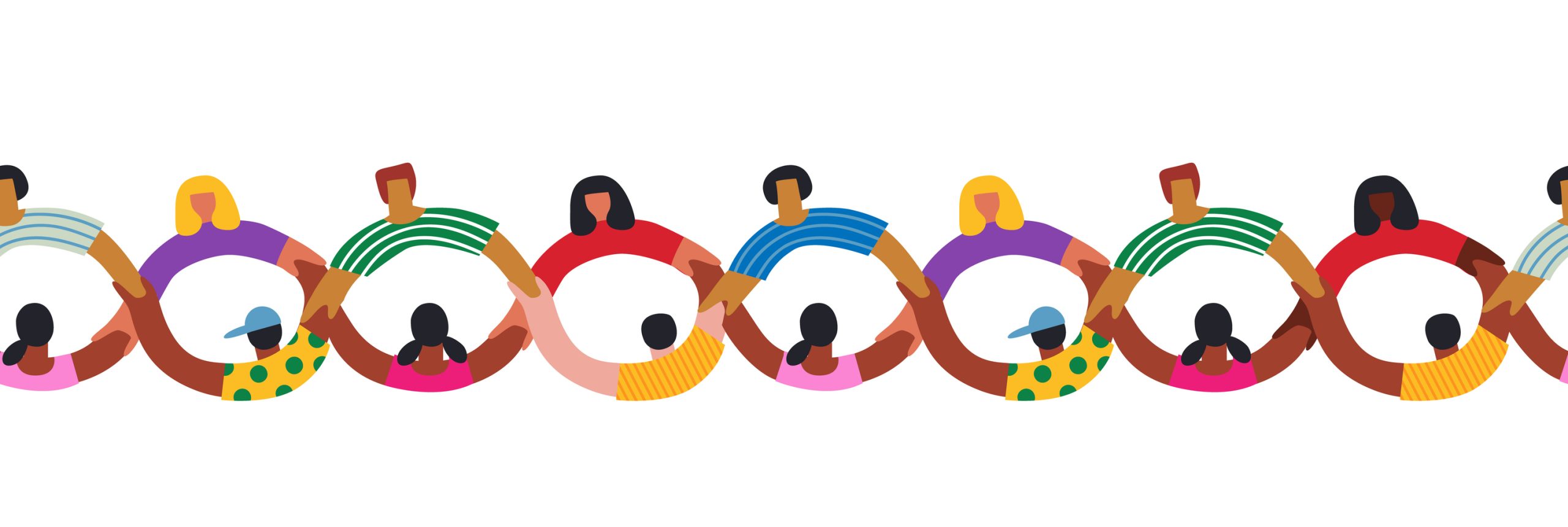Addressing and Reducing Barriers to Mental Health Treatment for Racial and Ethnic Minorities

As we move into the fourth week of Mental Health Awareness Month, we turn our focus to the theme of Racial and Ethnic Minority Groups. As mental health providers, our goal is to offer the best care to all individuals. However, members of racial and ethnic minority groups often encounter unique challenges that necessitate specialized support. By understanding these challenges and implementing strategies to reduce barriers, we can provide more effective, empathetic, and culturally sensitive care. Let’s begin by reviewing six common barriers Racial and Ethnic Minority groups commonly experience.
- Stigma and Discrimination: Individuals from minority backgrounds often face ongoing prejudice and discrimination, which contributes to increased stress, anxiety, and depression. This societal stigma is a significant mental health concern that affects the well-being of our clients. Additionally, cultural beliefs within minority communities can lead to internalized stigma, resulting in shame and reluctance to seek help. As providers, we need to address these stigmas by creating a safe and supportive environment where clients feel comfortable discussing their mental health.
- Cultural Barriers: Mental health services may not always align with the cultural values and beliefs of minority clients. This cultural mismatch can make it difficult for individuals to relate to and trust providers. It’s essential to develop a deeper understanding of the cultural backgrounds of clients to help bridge this gap. Language barriers and different cultural expressions of distress can lead to misdiagnosis or ineffective treatment. Investing time in cultural competence training and employing bilingual staff or interpreters can significantly improve service delivery.
- Socioeconomic Disparities: Many minority groups have lower socioeconomic status, limiting their access to quality mental health services due to cost, insurance issues, and geographical availability. We must advocate for policies that improve access to affordable care and work within our communities to provide low-cost or sliding-scale services. There is often a lack of awareness about mental health resources and how to navigate the healthcare system within minority communities. Outreach programs and community education initiatives can play a pivotal role in bridging this gap.
- Trauma and Historical Context: Many minority groups carry the legacy of historical trauma, such as slavery, colonization, and genocide, which can impact mental health across generations. Trauma-informed care that acknowledges and addresses these historical factors is essential. Continuous exposure to racial violence, microaggressions, and systemic racism leads to chronic stress and trauma. Providing a supportive space where clients can process these experiences is vital for their mental health.
- Social and Familial Support: Cultural expectations regarding family roles and mental health can influence how individuals seek and receive support. Understanding these dynamics can help us engage families in the therapeutic process more effectively. The presence or absence of supportive community networks can significantly impact mental health outcomes. Building connections with community leaders and organizations can help us support our clients more holistically.
- Trust in the Healthcare System: Past abuses and unethical practices in medical research and treatment of minority groups have led to deep-seated mistrust in the healthcare system. Building trust requires transparency, consistency, and respect for our clients’ experiences and perspectives. A lack of diversity among healthcare providers can make it harder for minority individuals to find practitioners who understand their cultural background and experiences. Promoting diversity in our profession is crucial for providing relatable and effective care.

To effectively support the mental health of racial and ethnic minority groups, it is essential to recognize and address the specific barriers they face. These barriers, ranging from societal stigma to socioeconomic disparities, can significantly hinder access to and the effectiveness of mental health care. By understanding these unique challenges, we can develop and implement targeted strategies that reduce these barriers, ensuring that our mental health services are inclusive, accessible, and responsive to the needs of all individuals. Here are ten key strategies to reduce barriers to mental health treatment for minority groups.
- Provide Culturally Competent Care: Providing ongoing cultural competence training for mental health providers ensures that we understand and respect the cultural values, beliefs, and practices of minority clients. Developing and utilizing therapeutic approaches that are culturally sensitive and tailored to the specific needs of minority communities is equally important.
- Increase Diversity in the Mental Health Workforce: Actively recruiting and retaining mental health professionals from diverse racial and ethnic backgrounds helps ensure the workforce better reflects the population it serves. Establishing mentorship programs and support networks for minority mental health professionals can also help them navigate their careers and succeed in their roles.
- Improve Access to Services: Advocating for policies that provide affordable mental health care, including expanded insurance coverage and sliding-scale fees, is essential. Increasing the availability of mental health services in underserved areas through mobile clinics, telehealth services, and community-based programs can also improve access.
- Address Language Barriers: Hiring bilingual mental health providers and staff ensures clients can communicate in their primary language. Offering professional interpretation services to bridge language gaps during therapy sessions is another effective strategy.
- Conduct Community Engagement and Outreach: Conducting outreach and education campaigns within minority communities can raise awareness about mental health issues and available services. Collaborating with trusted community organizations, religious institutions, and leaders to disseminate information and build trust is also crucial.
- Build Trust in the Healthcare System: Fostering transparency and accountability in mental health services can help rebuild trust, particularly in communities with a history of medical mistrust. Supporting the role of patient advocates who can help minority clients navigate the healthcare system and ensure their needs are met is also vital.
- Address Social Determinants of Health: Offering integrated services that address both mental health and social determinants of health, such as housing, employment, and education support, can provide comprehensive care. In addition, developing financial assistance programs to help cover the cost of services for those who cannot afford it is essential.
- Advocate for Equitable Policy: Advocating for legislation that promotes equity in mental health care, such as funding for minority mental health programs and anti-discrimination policies, is important. Supporting research and data collection on mental health disparities can inform policies and practices that address the specific needs of minority communities.
- Promote Mental Health Literacy: Implementing mental health education programs in schools that include information about cultural and racial issues in mental health can be beneficial. Hosting workshops and seminars in community centers to educate the public about mental health, reduce stigma, and encourage help-seeking behavior is also effective.
- Create Safe and Inclusive Environment: Designing mental health facilities to be welcoming and inclusive, with diverse representation in decor, reading materials, and resources, can make a significant difference. Establishing feedback mechanisms that allow clients to voice their concerns and suggestions ensures that services continually improve and adapt to their needs.
By implementing these strategies, mental health providers and policymakers can work towards reducing barriers and ensuring that all individuals, regardless of their racial or ethnic background, have access to the mental health care they need. Integrating culturally competent care, improving access and affordability, building trust, and engaging with communities are crucial steps in promoting equity and healing for all our clients.
Ready to Learn More:

Listen to Season 3 of CASAT Conversation which explores the complex topic of health equity. Health equity is achieved when every person has an equal opportunity to attain their full health potential. Behavioral Health Equity is the right to access quality health care for all populations regardless of the individual’s race, ethnicity, gender, socioeconomic status, sexual orientation, or geographical location. This includes access to prevention, treatment, and recovery services for mental and substance use disorders. Health and behavioral health inequities impact length of life; quality of life; rates of disease, disability, and death; severity of disease and access to treatment. You’ll learn from clinicians, researchers, authors, and leaders who share important insights regarding how to achieve health equity.
References
Substance Abuse and Mental Health Services Administration. (2024). 2024 Mental Health Awareness Month Toolkit. Retrieved from https://www.samhsa.gov/mental-
Blog Post Tags:
Related Blog Posts
Related Learning Labs
Related Resources
.
- Buscar Tratamiento de Calidad para Trastornos de uso de Sustancia (Finding Quality Treatment for Substance Use Disorders Spanish Version)
- Finding Quality Treatment for Substance Use Disorders
- Focus On Prevention: Strategies and Programs to Prevent Substance Use
- Monthly Variation in Substance Use Initiation Among Full-Time College Students
- The National Survey on Drug Use and Health (NSDUH) Report: Monthly Variation in Substance Use Initiation Among Adolescents








